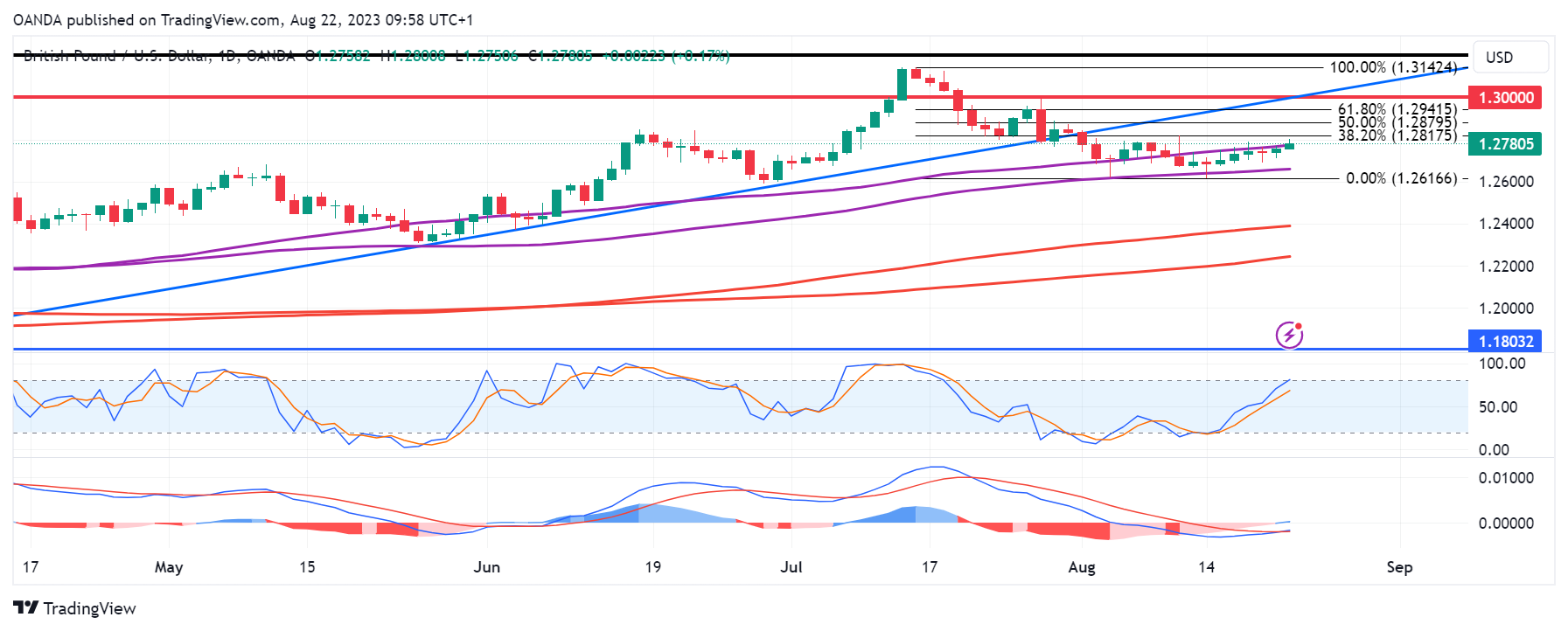- New inflation methodology offers hope for BoE
- 1.28 could be major resistance point for GBPUSD
- A break of 1.26 could be bearish signal
Recent UK economic data has been a mixed bag, with wages rising at a much-accelerated rate but inflation decelerating as expected.
While the Bank of England will be relieved at the latter, the former will remain a concern as wage growth even near those levels is not consistent with inflation returning sustainably to target over the medium term.
The ONS released new figures overnight that appeared to suggest core inflation is not rising as fast as the CPI data suggests. The reportedly more sophisticated methodology concluded that core prices rose 6.8% last month, down from 7% the previous month and 7.3% the month before.
The official reading for July was slightly higher at 6.9% but down from only 7.1% in May. So not only is the new methodology showing core inflation lower last month but the pace of decline is much faster. That will give the BoE hope that price pressures are easing and they’re expected to do so much more over the rest of the year.
Will the cable break key support or resistance?
The pound has continued to trend higher against the dollar over the last week or so having corrected quite considerably since the middle of last month.
GBPUSD Daily

Source – OANDA on Trading View
It’s not clear whether this will prove to be a resumption of the uptrend or merely a bearish consolidation. It is currently nearing 1.28, the area around which it has previously run into resistance this month and around the 38.2% Fibonacci retracement level.
Another rebound off here could be viewed as another bearish signal, which may suggest we’re currently seeing a bearish consolidation, while a move above could be more promising for the pound.
If GBPUSD does rebound lower then the area just above 1.26 will be key, given this is where it has recently seen strong support. It is also where the 55/89-day simple moving average band has continued to support the price in recent months.
